32 start with P start with P
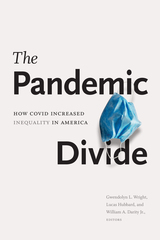
Contributors. Fenaba Addo, Steve Amendum, Leslie Babinski, Sandra Barnes, Mary T. Bassett, Keisha Bentley-Edwards, Kisha Daniels, William A. Darity Jr., Melania DiPietro, Jane Dokko, Fiona Greig, Adam Hollowell, Lucas Hubbard, Damon Jones, Steve Knotek, Arvind Krishnamurthy, Henry Clay McKoy Jr., N. Joyce Payne, Erica Phillips, Eugene Richardson, Paul Robbins, Jung Sakong, Marta Sánchez, Melissa Scott, Kristen Stephens, Joe Trotter, Chris Wheat, Gwendolyn L. Wright
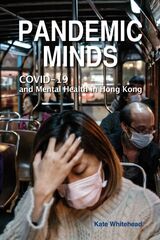
The COVID-19 pandemic was a global crisis that affected millions of lives and brought mental health challenges to the forefront. In Hong Kong, the situation was worsened by uniquely strict COVID-19 regulations, quarantine measures, and travel restrictions. The mental health issues associated with the pandemic did not end with the lifting of the mask mandate. On the contrary, the repercussions are only just beginning to surface and their impact will be felt for years to come.
This eye-opening book shares the stories of ordinary Hongkongers who faced extraordinary challenges during the pandemic. Through a blend of first-person accounts, psychological insights, and hard data, it offers a compelling and accessible exploration of the toll that the COVID-19 pandemic has taken on mental health in Hong Kong.
However, Pandemic Minds is not only a chronicle of suffering—it is also a guide to healing and hope. It offers practical advice on how to overcome the mental health issues caused by the pandemic, and how to build resilience and well-being. It reveals the lessons that can be learned from Hong Kong’s experience, and how they can help individuals and policymakers around the world.
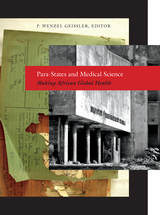
Contributors. Uli Beisel, Didier Fassin, P. Wenzel Geissler, Rene Gerrets, Ann Kelly, Guillaume Lachenal, John Manton, Lotte Meinert, Vinh-Kim Nguyen, Branwyn Poleykett, Susan Reynolds Whyte

By the early twenty-first century, about one woman in twelve could expect to die of a pregnancy or childbirth complication in Malawi. Specific deaths became object lessons. Explanatory stories circulated through hospitals and villages, proliferating among a range of practitioners: nurse-midwives, traditional birth attendants, doctors, epidemiologists, herbalists. Was biology to blame? Economic underdevelopment? Immoral behavior? Tradition? Were the dead themselves at fault?
In Partial Stories, Claire L. Wendland considers these explanations for maternal death, showing how they reflect competing visions of the past and shared concerns about social change. Drawing on extended fieldwork, Wendland reveals how efforts to legitimate a single story as the authoritative version can render care more dangerous than it might otherwise be. Historical, biological, technological, ethical, statistical, and political perspectives on death usually circulate in different expert communities and different bodies of literature. Here, Wendland considers them together, illuminating dilemmas of maternity care in contexts of acute change, chronic scarcity, and endemic inequity within Malawi and beyond.

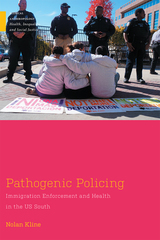

Though polychlorinated biphenyls (PCBs) have been banned in the United States for more than thirty years, the toxic effects of their presence in local environments continue to be a significant public health concern. PCBs: Human and Environmental Disposition and Toxicology brings together more than fifty established specialists on PCB toxicity to discuss recent trends and specialized investigations of PCB influences on the environment and on humans. Renowned scientists including Paul S. Cooke, Takeshi Nakano, Tomas Trnovec, Deborah C. Rice, Linda S. Birnbaum, and Charles S. Wong present cutting-edge research on Hudson River PCBs, human contamination, homologue profiles, high PCB exposure in Slovakia, and PCB effects on the thyroid hormone, nutrition, and estrogen levels in humans and animals. Focusing on the detection, movement, metabolism, toxicity, remediation, and risk assessment of PCB contamination, this multi-disciplinary study is a valuable resource for regulatory agencies and scientists working with PCBs.
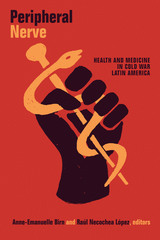
Contributors. Cheasty Anderson, Anne-Emanuelle Birn, Katherine E. Bliss, Gilberto Hochman, Jennifer L. Lambe, Nicole Pacino, Carlos Henrique Assunção Paiva, Jadwiga E. Pieper Mooney, Raúl Necochea López, Marco A. Ramos, Gabriela Soto Laveaga
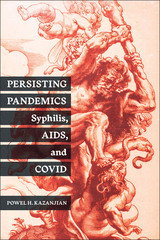
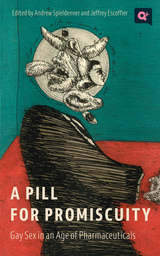
A Pill for Promiscuity brings together academics, artists, and activists—from different generations, countries, ethnic backgrounds, and HIV statuses—to reflect on how gay sex has changed in a post-PrEP era. Some offer personal perspectives on the value of promiscuity and the sexual communities it fosters, while others critique unequal access to PrEP and the increased role Big Pharma now plays in gay life. With a diverse group of contributors that includes novelist Andrew Holleran, trans scholar Lore/tta LeMaster, cartoonist Steve MacIsaac, and pornographic film director Mister Pam, this book asks provocative questions about how we might reimagine queer sex and sexuality in the 21st century.
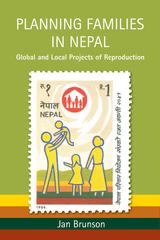
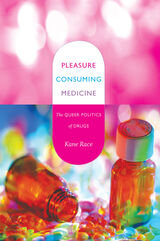
Race does not suggest that drug use is risk-free, good, or bad, but rather that the regulation of drugs has become a site where ideological lessons about the propriety of consumption are propounded. He argues that official discourses about drug use conjure a space where the neoliberal state can be seen to be policing the “excesses” of the amoral market. He explores this normative investment in drug regimes and some “counterpublic health” measures that have emerged in response. These measures, which Race finds in certain pragmatic gay men’s health and HIV prevention practices, are not cloaked in moralistic language, and they do not cast health as antithetical to pleasure.
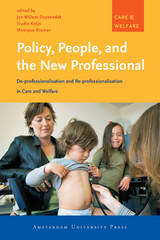
The volume reveals how public dissatisfaction with caregivers, financial pressures from government agencies, and attempts to cope with Europe’s increasingly multicultural population have led to changes in responsibilities and oversight for a wide range of practitioners. Though more changes are certain to come as Europe’s population ages—Policy, People, and the New Professional provides an essential explanation of the road traveled so far.
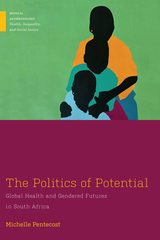
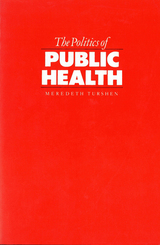
The book is divided into four parts. Part 1 outlines current and alternative approaches to health, theories of disease causation, the policies and practices that follow from these theories, and issues of equity and access to health care. A chapter of women's health in three African countries illustrates these concepts. Part 2 describes limits to conventional public health, using case histories of plague control, dioxin decontamination, sanitary reform, and smallpox and malaria eradication. In Part 3, Turshen presents case histories of preventive medicine, nutrition and agribusiness, mental health, and AIDS in Africa to suggest new approaches based on an alternative model of social production. Part 4 looks to the future of public health. It examines basic issues in integrating public health research, training, and services, and concludes with an agenda for action.
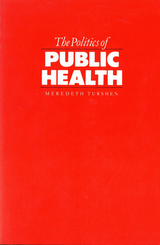
The book is divided into four parts. Part 1 outlines current and alternative approaches to health, theories of disease causation, the policies and practices that follow from these theories, and issues of equity and access to health care. A chapter of women's health in three African countries illustrates these concepts. Part 2 describes limits to conventional public health, using case histories of plague control, dioxin decontamination, sanitary reform, and smallpox and malaria eradication. In Part 3, Turshen presents case histories of preventive medicine, nutrition and agribusiness, mental health, and AIDS in Africa to suggest new approaches based on an alternative model of social production. Part 4 looks to the future of public health. It examines basic issues in integrating public health research, training, and services, and concludes with an agenda for action.

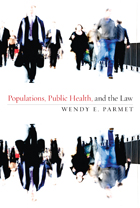
Law plays a crucial role in protecting the health of populations. Whether the public health threat is bioterrorism, pandemic influenza, obesity, or lung cancer, law is an essential tool for addressing the problem. Yet for many decades, courts and lawyers have frequently overlooked law’s critical importance to public health. Populations, Public Health, and the Law seeks to remedy that omission. The book demonstrates why public health protection is a vital objective for the law and presents a new population-based approach to legal analysis that can help law achieve its public health mission while remaining true to its own core values.
By looking at a diverse range of topics, including food safety, death and dying, and pandemic preparedness, Wendy E. Parmet shows how a population-based legal analysis that recalls the importance of populations and uses the tools of public health can enhance legal decision making while protecting both public health and the rights and liberties of individuals and their communities.

This volume brings together feminist social and biomedical scholars from the Southern and Northern hemispheres to examine the aggregate forces that affect reproductive choice. Drawing on numerous case studies, this book examines the range of social, economic, and scientific policies which collectively impact on reproductive well being. Power and Decision offers an analysis of how disparate policies, seemingly unrelated to reproduction, are implicitly “pro-natalist” or “anti-natalist.” Moreover, these policies are imbued with gender, race, and class biases. The authors examine the reproductive impact of welfare and parental leave legislation, health services, adoption policies, biomedical research, the global transfer and regulation of reproductive technologies, and international family planning programs.
Offering a rare global feminist critique of social policy, this volume makes explicit the direction of current legislative, economic, and scientific trends, providing a basis for discussion, debate, and possible redress.

Rapid development of sophisticated new techniques has vastly increased physicians' ability to detect congenital disorders before birth. Yet advances in treatment, before or after birth, have been very modest. This discrepancy leads to ethical and social problems that require serious attention by professionals and patients alike. This innovative book tackles such problems in the case of prenatal screening for neural tube defects. Afflicting about 7,000 newborn babies each year in the United States, neural tube defects are serious abnormalities in the development of the brain and spinal cord that have grave consequences for the child and family.
The editors, Elena O. Nightingale, a geneticist, physician, and expert in health policy, and Susan B. Meister, a specialist in parent-child nursing, social and developmental psychology, and quantitative methods, led a multidisciplinary effort by distinguished Harvard faculty, including economist Richard Zeckhauser and clinical decision analyst Barbara J. McNeil. Other contributors include Donald S. Shepard, Mary L. Kiely, and Stephen G. Pauker. The book examines the impact of technology assessment, cost effectiveness analysis, and decision analysis on reaching decisions about prenatal screening. The book includes a discussion of the results of formal analyses against a backdrop of our basic ethical and societal values, as well as the analyses themselves. Health care workers, policymakers, and concerned individuals will find this volume informative and thought provoking.
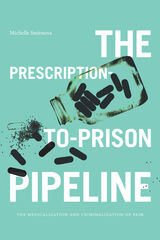

Like other dangerous but pleasurable activities, such as downhill skiing and mountain climbing, engaging in unprotected sex implicitly involves the weighing of costs and benefits. Recognizing that the transmission of the AIDS virus is a consequence of private choices—rational and often informed—to engage in risky conduct, the authors employ tools of economic analysis to reassess the orthodox approach to AIDS by the public health community.
Standard predictions of the spread of AIDS, the authors argue, are questionable because they ignore rational behavioral response to the risk of infection. For the same reason, customary recommended public health measures, such as extensive testing for the AIDS virus, not only may be ineffective in controlling the spread of the disease but may actually cause it to spread more rapidly. The authors examine regulatory measures and proposals such as mandatory testing, criminal punishments, and immigration controls, as well as the subsidization of AIDS education and medical research, the social and fiscal costs of AIDS, the political economy of the government's response, and the interrelation of AIDS and fertility risk.
Neither liberal nor conservative, yet on the whole skeptical about governmental involvement in the epidemic, this book is certain to be controversial, but its injection of hard-headed economic thinking into the AIDS debate is long overdue. Although Private Choices and Public Health is accessible to the interested general reader, it will also capture the attention of economists—especially those involved in health issues—epidemiologists, public health workers, lawyers, and specialists in sexual behavior and drug addiction.
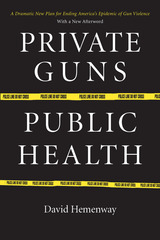
-Richard F. Corlin, Past President, American Medical Association
"This lucid and penetrating study is essential reading for anyone who wishes to understand the tragedy of gun violence in America and-even more important-what we can do to stop it. David Hemenway cuts through the cant and rhetoric in a way that no fair-minded person can dismiss, and no sane society can afford to ignore."
-Richard North Patterson, novelist
"The rate of gun-related homicide, suicide, and accidental injury has reached epidemic proportions in American society. Diagnosing and treating the gun violence epidemic demands the development of public health solutions in conjunction with legislative and law enforcement strategies."
-Kweisi Mfume, President and CEO of NAACP
"In scholarly, sober analytic assessments, including rigorous critiques of NRA-popularized pseudoscience, David Hemenway constructs a convincing case that firearm availability is a critical and proximal cause of unparalleled carnage. By formulating such violence as a public health issue, he proposes workable policies analogous to ones that reduced injuries from tobacco, alcohol, and automobiles."
-Jerome P. Kassirer, Editor-in-Chief Emeritus, New England Journal of Medicine, and Distinguished Professor, Tufts University School of Medicine
"As a former District Attorney and Attorney General, I know the urgency of providing safe homes, schools and neighborhoods for all. This remarkable tour-de-force is a powerful study of one promising solution: a data-rich, eminently readable demonstration of why we should treat gun violence as an American epidemic."
-Scott Harshbarger, Former Attorney General of Massachusetts, President and CEO of Common Cause
On an average day in the United States, guns are used to kill almost eighty people, and to wound nearly three hundred more. If any other consumer product had this sort of disastrous effect, the public outcry would be deafening; yet when it comes to guns such facts are accepted as a natural consequence of supposedly high American rates of violence.
Private Guns, Public Health explodes that myth and many more, revealing the advantages of treating gun violence as a consumer safety and public health problem. David Hemenway fair-mindedly and authoritatively demonstrates how a public-health approach-which emphasizes prevention over punishment, and which has been so successful in reducing the rates of injury and death from infectious disease, car accidents, and tobacco consumption-can be applied to gun violence.
Hemenway uncovers the complex connections between guns and self-defense, gun violence and schools, gun prevalence and homicide, and more. Finally, he outlines a policy course that would significantly reduce gun-related injury and death.
With its bold new public-health approach to guns, Private Guns, Public Health marks a shift in our understanding of guns that will-finally-point us toward a solution.

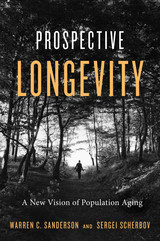
From two leading experts, a revolutionary new way to think about and measure aging.
Aging is a complex phenomenon. We usually think of chronological age as a benchmark, but it is actually a backward way of defining lifespan. It tells us how long we’ve lived so far, but what about the rest of our lives?
In this pathbreaking book, Warren C. Sanderson and Sergei Scherbov provide a new way to measure individual and population aging. Instead of counting how many years we’ve lived, we should think about the number of years we have left, our “prospective age.” Two people who share the same chronological age probably have different prospective ages, because one will outlive the other. Combining their forward-thinking measure of our remaining years with other health metrics, Sanderson and Scherbov show how we can generate better demographic estimates, which inform better policies. Measuring prospective age helps make sense of observed patterns of survival, reorients understanding of health in old age, and clarifies the burden of old-age dependency. The metric also brings valuable data to debates over equitable intergenerational pensions.
Sanderson and Scherbov’s pioneering model has already been adopted by the United Nations. Prospective Longevity offers us all an opportunity to rethink aging, so that we can make the right choices for our societal and economic health.


Public Health and the State constitutes both a fine piece of social history and an ideal model for evaluating our current definition of public health. In this thought-provoking account, Ms. Rosenkrantz perceptively traces the development of the Massachusetts State Board of Health--established in 1869 as the first state institution in the United States responsible for preventing unnecessary mortality and promoting all aspects of public health.
This study describes the areas in which state responsibility for deterring disease assumed increased authority after the Civil War. It begins at a time when the definition of health' implied that it could be achieved, supported by the perfectionist belief that a healthy populace--obedient to the laws of nature--guaranteed a sound society. As rapid urban and industrial growth began to sweep the country, however, there was an expressed concern that this expansion threatened the health and morals of the people. During this period, when the etiology of disease was ascribed to a variety of environmental and behavioral factors, the Massachusetts Board developed a comprehensive program of investigation and advice on such diverse issues as housing, water supplies, slaughterhouse conditions, and the use of alcohol.
Later, as specific medical prophylaxis and therapy came to characterize public health policy, the relationship between sanitary science and social reform was redefined by both professional standards and public expectation. The State Board depended less and less upon its ability to influence individual conduct. Laboratory scientists, chemists, and physicians, who tended to describe disease in biological terms, directed public health toward science.
In view of pressing public health problems posed by such hazards as drug abuse and environmental pollution, Ms. Rosenkrantz warns us that it is as important to identify the origins of the social and scientific assumptions regarding public health as it is to discover the biological etiology of disease. The last chapter of Public Health and the State suggests that the goal of perfect health, based upon the ideal concepts of the past, may no longer be a viable objective. For these reasons she views the development of the Massachusetts State Board of Health as "the story of a successful endeavor that can never be re-enacted."
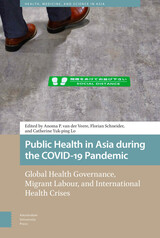

In this book, based almost exclusively on original source material, Dr. Blake takes a detailed look at the public health history of the town of Boston. Historically, the author tells us, public health may be viewed as the science and art of preventing disease and promoting health through organized community activity. A significant part of this study is the insight it offers into the early attitudes toward disease and death as well as other basic political, social, and economic questions.
Dr. Blake outlines the development of public health practice from occasional emergency measures to a continuing program for the prevention and control of certain epidemic diseases. The introduction and increasing use of smallpox inoculation and later of vaccination are described and their importance evaluated. The book also discusses the further developments in the 1790s and the following two decades that resulted from a series of yellow-fever epidemics in northern seaports, including the establishment of a board of health and its efforts to prevent recurrence of this disease. The prevention of other endemic infectious diseases, though far more important in their effect on the community’s health, was largely neglected. Nevertheless, the principles of notification, isolation, and quarantine had been established and the need for governmental activity to protect the public health, for special public health officials, and for expenditure of tax money for public health purposes had been recognized.
This study, restricted in time to the period before Boston became a city (1630–1822), deals with the early years of the public health movement, a period that has been largely neglected. In comparing Boston’s experience with that of other colonies and England, Dr. Blake presents the European background in both the theory and practice of epidemiology and public health. The colonies themselves, whose differences caused many contemporaries to despair of their ever becoming a single nation, were yet bound by an essential homogeneity. “By and large they had the same language, the same religion, the same inheritance of British social and political ideals. And by and large they had the same diseases. Thus the history of public health in Boston becomes significant for the whole American experience.”
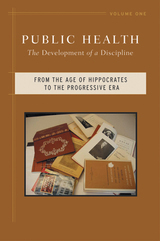
The editors provide annotated readings and biographical details to punctuate the historical timeline and to provide students with insights into the progression of ideas, initiatives, and reforms in the field. From Hippocrates and John Graunt in the early period, to John Snow and Florence Nightingale during the nineteenth-century sanitary reform movement, to Upton Sinclair and Margaret Sanger in the Progressive Era, readers follow the identification, evolution, and implementation of public health concepts as they came together under one discipline.
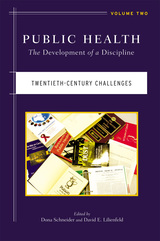
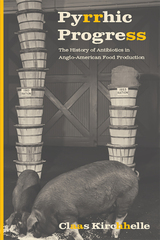
2020 Choice Outstanding Academic Title
Winner of the 2020 Turriano Prize from ICOHTEC
Short-listed and highly commended for the Antibiotic Guardian Award from Public Health England
Long-listed for the Michel Déon Prize from the Royal Irish Academy
Pyrrhic Progress analyses over half a century of antibiotic use, regulation, and resistance in US and British food production. Mass-introduced after 1945, antibiotics helped revolutionize post-war agriculture. Food producers used antibiotics to prevent and treat disease, protect plants, preserve food, and promote animals’ growth. Many soon became dependent on routine antibiotic use to sustain and increase production. The resulting growth of antibiotic infrastructures came at a price. Critics blamed antibiotics for leaving dangerous residues in food, enabling bad animal welfare, and selecting for antimicrobial resistance (AMR) in bacteria, which could no longer be treated with antibiotics. Pyrrhic Progress reconstructs the complicated negotiations that accompanied this process of risk prioritization between consumers, farmers, and regulators on both sides of the Atlantic. Unsurprisingly, solutions differed: while Europeans implemented precautionary antibiotic restrictions to curb AMR, consumer concerns and cost-benefit assessments made US regulators focus on curbing drug residues in food. The result was a growing divergence of antibiotic stewardship and a rise of AMR. Kirchhelle’s comprehensive analysis of evolving non-human antibiotic use and the historical complexities of antibiotic stewardship provides important insights for current debates on the global burden of AMR. This Open Access ebook is available under a CC-BY-NC-ND license, and is supported by a generous grant from Wellcome Trust.
READERS
Browse our collection.
PUBLISHERS
See BiblioVault's publisher services.
STUDENT SERVICES
Files for college accessibility offices.
UChicago Accessibility Resources
home | accessibility | search | about | contact us
BiblioVault ® 2001 - 2024
The University of Chicago Press









